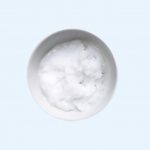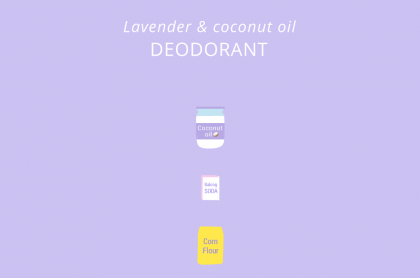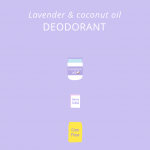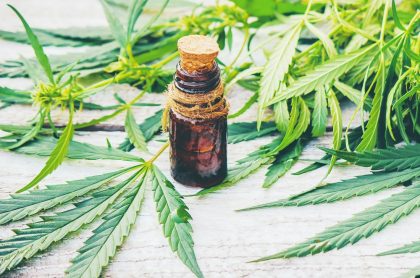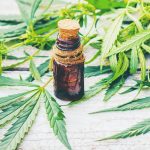Understanding coconut oil labels – all the names explained
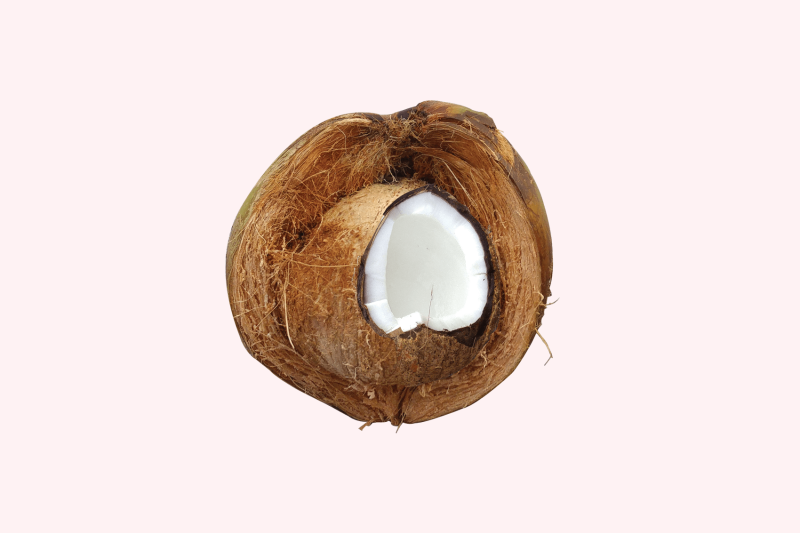

The differences in quality can be really big when it comes to coconut oil, so how do you know which coconut oil is good for you and which one you should stay away from?
I believe in always doing your research – not just with coconut oil, but with everything you put in or on your body.
Read what’s in a product and where and how it’s made.
Today I am going to dive into the world of coconut oil labels and explain about the different types of coconut oil, their processing methods, names and marketing claims.
Let’s start with the two main categories: virgin and refined coconut oil.
Virgin coconut oil
Coconut oil made from fresh coconut meat.
It has the characteristic coconut taste and smell.
This is the highest quality, most natural kind of coconut oil.
You can use it internally and externally, such as for skin and hair treatments, as well as for oil pulling.
Virgin coconut oil, also known as unrefined coconut oil can be made in different ways, which results in distinct flavors and nutritional values.
Refined coconut oil
Coconut oil made from dried coconut meat known as copra.
It has neutral taste and smell.
The quality varies a lot, depending on the coconuts that were used and the processing method.
Make sure to always buy organic refined coconut oil from a brand you trust.
Organic is more important here than with a virgin coconut oil, this has everything to do with the processing method.
The good: a high quality, organic refined coconut oil made from good coconuts and that hasn’t been altered with chemicals, is fine to use. Look for expeller-pressed refined oil.
It’s even more resistant to heat than virgin coconut oil, so it’s suitable for high-temperature cooking and it has a neutral flavor, which makes it very versatile to cook with.
The bad: Many refined coconut oils are made from old, rotten, moldy coconuts. (this article is in Dutch, but worth translating)
In order to get rid of all that dirt and make it look clean, they go through a lot of processing with harsh chemicals.
The final product is downright bad for you and the environment.
The ugly: there aren’t currently any international quality regulations when it comes to coconut oil, so anyone can basically put whichever claim they want on their label.
Producers of bad quality coconut oil don’t mention what’s in it and how it’s been made, because who would buy it then?
Make sure to research the producer’s website, contact them with questions if you can’t find the answers and know your basics.
If you have a brand that you know and trust, stick to it.
In my article about how to choose the best refined coconut oil I explain what the color and texture of coconut oil can indicate about the quality, as well as the price. (if it seems too good to be true, it probably is..)
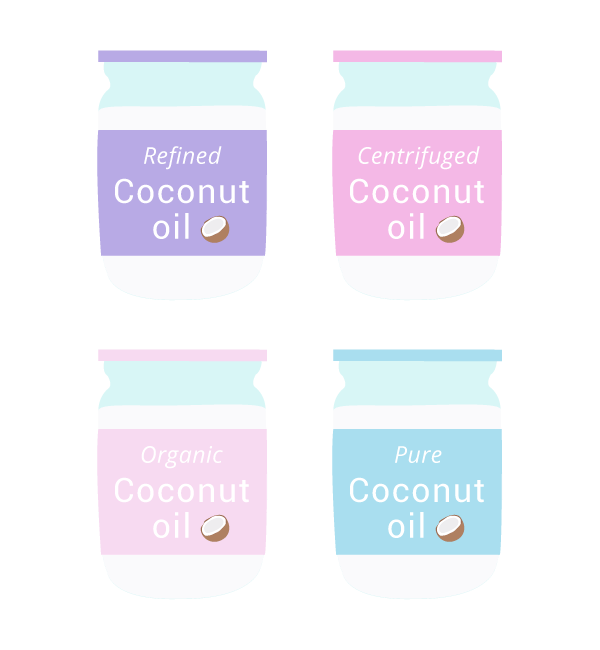
Unrefined coconut oil
A different name for virgin coconut oil.
Extra virgin coconut oil
Virgin coconut oil.
Virgin and extra-virgin are names used in the olive oil industry based on regulations related to extraction method and acidity levels of the oil.
There is a lot of difference between the two types of olive oil.
These regulations don’t apply to coconut oil, yet the name extra virgin is often used for marketing purposes to indicate superior quality.
Some brands use it to describe what they call the first pressing of coconut oil.
VCO
Short for virgin coconut oil.
EVCO
Short for extra virgin coconut oil.
Cold-pressed coconut oil
Virgin coconut oil made from grated fresh coconut meat, which is pressed in a carefully controlled heat environment, not exceeding 49° C / 120° F.
Cold pressing is often done manually and results in smaller batches of coconut oil production.
This type of coconut oil is more nutritious and of better quality than expeller pressed coconut oil.
The taste differs depending on pressure and temperature.
Mild flavors are the result of lower temperatures and more delicate processing.
The more pronounced ‘’toasted’’ oils result from a combination of high heat and low moisture.
I wrote an article about how they make cold-pressed virgin coconut oil in Bali with photos of the whole process.
Centrifuged coconut oil
Virgin coconut oil made from fresh coconut meat which is pressed into a coconut cream in a machine that is cooled with chilled water. This is to keep the temperatures as low as possible during production.
Centrifugation then concentrates the cream by separating the water and proteins.
This coconut oil has a very mild, light taste.
It’s considered to be the most superior quality of coconut oil in the world, due to its gentle way of processing, resulting in maximum nutritional value.
Centrifuged coconut oil is a more exclusive type of coconut oil and is usually produced in small quantities.
Raw coconut oil
Virgin coconut oil that can be produced in different ways, not exceeding temperatures of 45° C / 113° F.
Centrifuged coconut oil is a type of raw coconut oil.
Expeller pressed virgin coconut oil
Virgin coconut oil made from fresh coconut meat that is pressed in mechanical expeller presses.
It’s less nutritious than cold-pressed virgin coconut oil, but it enables the production of larger quantities of coconut oil in a shorter period of time.
Organic coconut oil
Virgin or refined coconut oil made from coconuts that are grown and processed organically, without the use of chemicals, fertilizers, insecticides etc.
Organic is especially important when buying refined coconut oil.
Virgin coconut oil is usually made without using chemicals, but refined coconut oil needs a lot of purification.
This can be done using natural methods or with chemicals. Always use the first option.
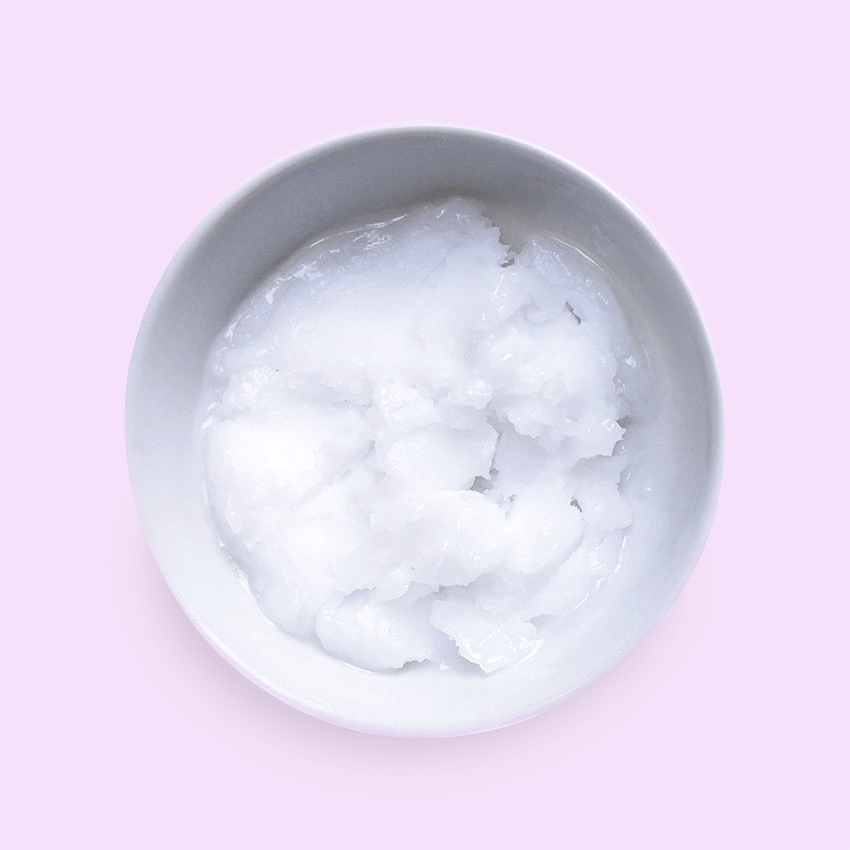
Whole kernel coconut oil
Coconut oil made from the whole coconut including the thin brown peel.
This type of coconut oil has a slightly nuttier taste.
RBD coconut oil
Refined coconut oil that has been purified by refining, bleaching and deodorizing it.
This is possible with or without chemicals. Bleaching for example can be done through a filter process using clay and deodorizing can be done with steam.
Unless it’s clearly specified how it’s been produced, all we know is that it’s refined coconut oil.
Expeller-pressed refined coconut oil
Refined coconut oil made from dried coconut meat that is pressed in mechanical expeller presses with temperatures of typically around 99° C / 210° F.
After the pressing the oil is filtered to get any possible dirt out.
Generally chemicals are not used to produce this type of coconut oil, which means it should also be labeled as organically produced.
An organic, expeller-pressed refined coconut oil is usually a good quality refined coconut oil.
Non-GMO coconut oil
With some products such as those made from corn or soy that are often GMO, it’s important to mention when a product is non-GMO.
Currently and up until now coconuts have always been natural and not genetically modified.
This makes all coconut oil non-GMO by definition.
Pure coconut oil
This one is very open for interpretation and that’s not good, because it means it can be anything really.
No chemicals? Hasn’t been mixed with other oils or ingredients?
Unless specified, it’s not clear whether this oil is refined, unrefined, how it has been produced etc.
If a label only says pure coconut oil, it’s usually not an indication of a high quality coconut oil.
Liquid Coconut Oil
An altered type of coconut oil that has had the Lauric acid (one of the main fatty acids) removed.
This results in an oil that always stays liquid, even when refrigerated.
Natural coconut oil is very adaptive to temperatures. It has a melting point of 24° C / 76° F when it becomes liquid and transparent (or yellow if it’s refined).
When the temperatures go down, it becomes solid.
Removing the Lauric acid from coconut oil is not easy and most of the times this requires chemical processing.
It’s important to know that Lauric acid is what makes coconut oil the most heat-stable oil in the world. The other fatty acids by themselves are not resistant to high temperatures. This makes the product Liquid Coconut Oil very sensitive to oxidation and not healthy to cook with.
Why then remove Lauric acid if it results in a product that is not good for our health?
I am quoting the following from a scientific report : ”The exclusion of Lauric acid reflects the fact that this fatty acid has high commercial value as a precursor for antibacterial pharmaceuticals (eg, monolaurin) and other worthwhile compounds.”
High commercial value. I’ll let you take your own conclusions.
In the beauty industry this product is known as fractionated coconut oil, which is often used as carrier oil to easily mix other ingredients with.
See fractionated coconut oil.
Coconut oil cooking spray
Coconut oil in a spray bottle mixed with a whole list of ingredients to help the oil get out of the container.
It contains things such as:
1. Propellants, which are derived from both mineral and natural gases.
2. Dimemythlpolysiloxane, also known as Aspolydimethylsiloxane a chemical that’s often used in cosmetics.
Naturalpedia describes it as ”a toxic industrial chemical that is partially derived from silicone.”
These are not ingredients that should be in or on your body.
While spraying your oil might seem convenient, it’s really not worth risking your health for.
More about why it’s best not to use coconut oil cooking spray and how to apply virgin coconut oil as anti-stick instead, can be found here.
Fractionated coconut oil
A type of coconut oil used in the beauty industry. By removing one of its main components Lauric acid, it always stays liquid.
It doesn’t have the health benefits of natural coconut oil and depending on how it’s been produced (which unfortunately is mostly not clear) it’s often the result of chemical processing.
This product easily mixes with other ingredients and always stays liquid, unlike natural coconut oil which becomes solid in cold temperatures.
Fractionated coconut oil is basically the same product as liquid coconut oil. It’s marketed as a cooking oil, which -unfortunately not mentioned on the label- is very sensitive to oxidation.
See also liquid coconut oil.
Hydrogenated coconut oil
This oil isn’t sold as a product by itself but you can find it on the ingredients list of mostly junk food.
Hydrogenated coconut oil is the result of chemically altering the unsaturated fats in coconut oil. It is used as a cheap way to avoid a (food) product from melting or changing consistency.
This creates dangerous trans fats – not something you want to put in your body.
You probably won’t ever find a consumer coconut oil brand labeled as hydrogenated coconut oil, but there are some coconut oil brands who mention that their oil is non-hydrogenated to emphasize that their product doesn’t contain trans fats.
Non-hydrogenated coconut oil
See hydrogenated coconut oil.
Fair trade coconut oil
Coconut oil that has been produced according to the ‘’Fair for Life’’ concept that guarantees fair pay, safe working conditions and community projects for the people involved with the production.
Cruelty-free coconut oil
Coconut oil is vegan and not tested on animals.
Unfortunately some coconut producers use chained monkeys instead of humans to pick coconuts. Monkeys work much faster and they cost much less.
Luckily there is increased attention to this deeply saddening, unethical practise.
All products should be cruelty-free by default. Please make it your priority to support cruelty-free coconut brands.
That’s it! I think I’ve covered pretty much everything, but let me know if you think of another coconut oil name that you think should be mentioned here.
I hope this article with all the coconut oil terminology made things clearer for you and gave you a better idea of which coconut oil is good for you and which is best avoided.
For more in-depth information on this subject you can take a look at my previous articles How to choose the best virgin coconut oil and How to choose the best refined coconut oil.
For everything coconut, plant-based recipes and DIY beauty go to www.thisiscoco.com
Similar articles
-
Our top tips and tricks to improve your sleep over time
inWith COVID-19 running rampant, holistic health coach Kelly Cohen is here to show you ways to improve your sleep over time.
-
Is there a connection between cancer, diet and CBD?
inAs more and more Americans get sick with cancer, Holistic Cannabis Practitioner Erin Kenney looks at the connection between cancer, diet and CBD.
-
Post-partum recovery: a nutritionist gets back on track!
inPost-partum recovery is never easy, no matter who you are. Follow along this two-part series with nutritionist Stacey Gross on how she managed it.
More in Health
-
Do you really need supplements for a healthy lifestyle?
inMany people regularly ask, “do I really need supplements for a healthy lifestyle?”, and if so, which are the best ones to take?
-
Biohack: how to reap the top health benefits of grounding!
inI’m sure you’ve all heard of grounding, it’s been quite the buzz word recently. But what is it, really, and what are the health benefits of grounding?
-
Discover the power of conscious deep breathing on your health
inBreathing is something the body does without any conscious effort, but the power of conscious deep breathing is definitely no joke!

